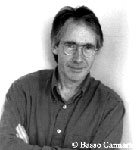News From:
History abounds with examples of how instinct, not data, led to discoveries. Even Einstein's theory of relativity had to wait decades for verification, says Ian McEwan

...This collection, mostly written by working scientists, does not represent the antithesis of science. These are not simply the unbuttoned musings of professionals on their day off. The contributions, ranging across many disparate fields, express the spirit of a scientific consciousness at its best - informed guesswork that is open-minded, free-ranging, intellectually playful.
Many replies offer versions of the future in various fields of study. Those readers educated in the humanities, accustomed to the pessimism that is generally supposed to be the mark of a true intellectual, will be struck by the optimistic tone. Some, like the psychologist Martin Seligman, believe we are not rotten to the core. Others even seem to think that the human lot could improve.
Generally evident is an unadorned pleasure in curiosity, a collective expression of wonder at the living and inanimate world which does not have an obvious equivalent in, say, cultural studies. In the arts, perhaps lyric poetry would be a kind of happy parallel.... [click here to continue]
Copyright © Ian McEwan, 2005. Excerpted in The Telegraph from Ian McEwan's introduction to What We Believe But Cannot Prove: Today's Leading Thinkers on Science in the Age of Certainty, edited by John Brockman (UK: Free Press); (US: HarperCollins, forthcoming).

